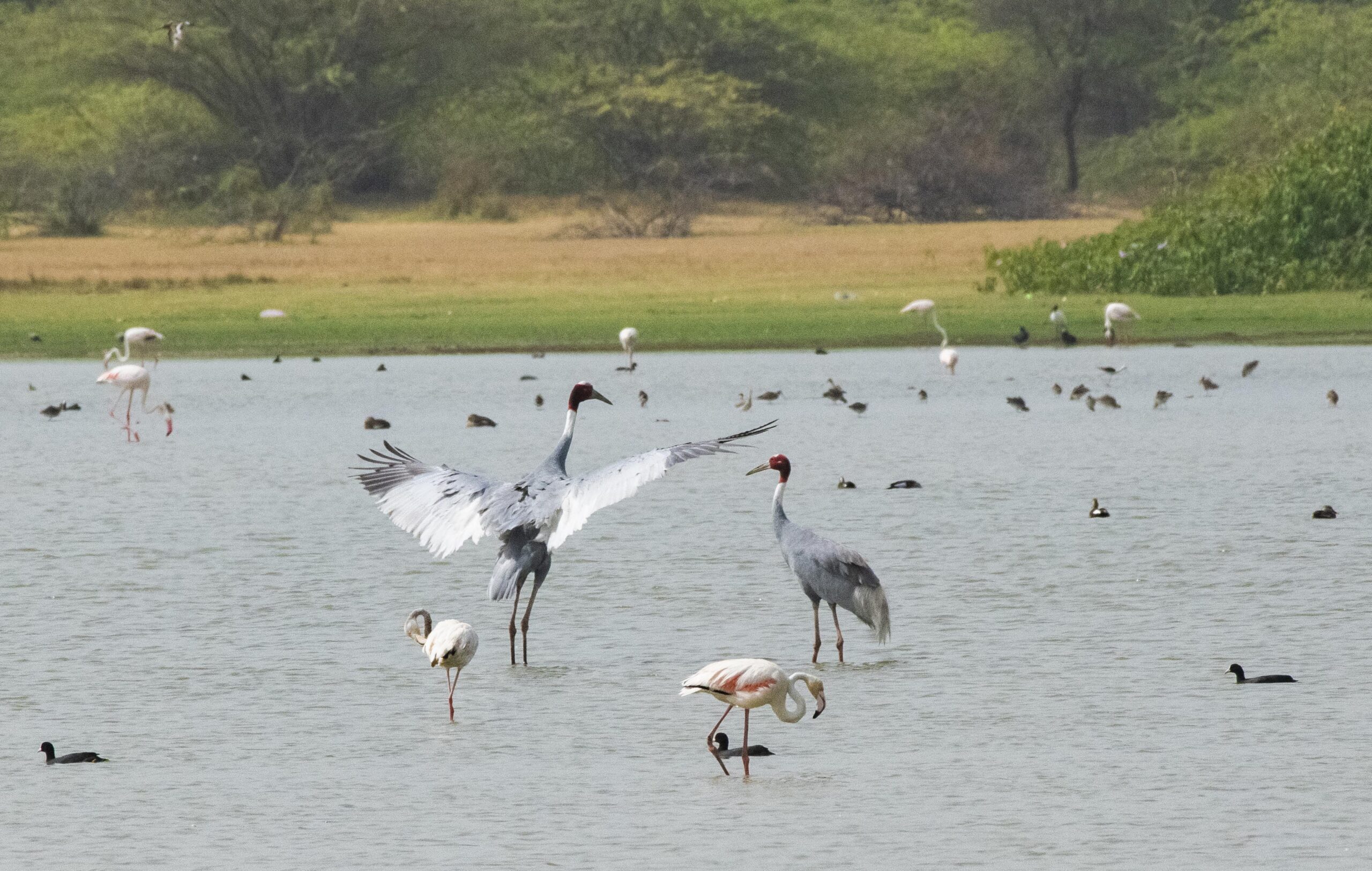Vinay Dave, a teacher in Udaipur, is a birder and habitat conservation volunteer who takes early morning walks at least thrice a week along various water bodies of Udaipur tells us: “I regularly spend early mornings around different water bodies, but Menar is special. It is huge and never dries up. There are 10 more lakes and ponds within a ten-kilometres radius that sustain the ecosystem and the local villagers are extremely protective towards all of them. Menar has become a safe haven for both the migratory and resident birds. One can see the birds from up close, something which is not possible anywhere else.” he said.

The district administration’s management plan to systematically develop the lake, in conjunction with a community action plan is what made way for Menar to receive Ramsar protection status as a wetland. Other freshwater lakes that are part of the regional ecosystem are protected via the application of the Wetlands (Conservation and Management) Rules, 2019. This is how Menar came to join Rajasthan’s two other wetlands recognised as Ramsar sites- the Keoladeo Ghana National Park in the Bharatpur district and Sambhar Salt Lake in the Jaipur district.

Human guests are surely outnumbered by migratory birds that flock to the desert state. Endowed with numerous life-giving water bodies, the Ramsar site at Menar is an unexplored treasure. Located at a spot about 45 km from Udaipur and popularly known as the “bird village”, this little-known lake hosts thousands of migratory birds, many of whom use the waterbody as their breeding ground while others are permanent residents. Throngs of migratory species including Indian knob-billed ducks, bar-headed geese, and a host of waders, wagtails, and terns visit Menar in significant numbers. Several resident species such as moorhen, waterhen, dabchick, whistling teals, knob billed duck, herons, storks and egrets breed here.

The lake is unique from a nature conservation perspective and is probably the only lake in India where any personal use of water is prohibited by the surrounding community.

“Located on the outskirts of Udaipur, this a perfect example of community conservation of a wetland in their village. People do not use the water from this lake directly for any personal use such as bathing, washing, drinking or irrigation. They are also vigilant and do not allow anyone to pollute or disturb these birds,” said Manoj Kulshrestha, a life member of the Bombay Natural History Society (BNHS) and Jaipur based bird expert working on avian and habitat conservation in the grasslands and wetlands of Rajasthan for more than 35 years.

If you are in the lake city of Udaipur, Menar with its exemplary holistic and socially aware wetland conservation practices, is a must visit. Bird watchers will find this wetland to be a paradise and can gain useful tips from local Pakshi Mitras (friends of the birds) on how to develop a social consensus amongst locals to conserve natural habitats in harmony with human settlement.

Info box:
- How to reach:
-
Menar is 45 km from Udaipur and has a few homestay options.
Check List:




